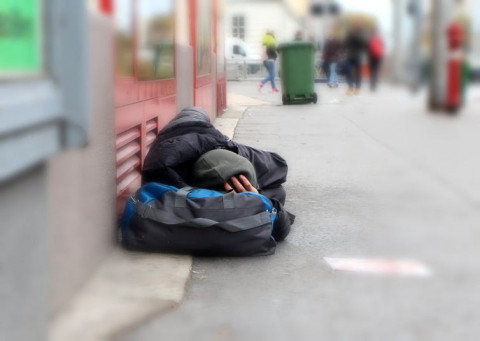
Tony had lived on the streets for 45 years, and in recent years had become increasingly physically unwell. Despite this he refused all offers of help, and it became clear to his support workers that he found social engagement of any kind very distressing. It was only when it was recognised that he had autism that staff were able to adapt their approach to support him to move off the streets into a hostel.
There has been little focus on whether autistic people might be over-represented among the homeless population. Autism is a condition characterised by differences in the way the brain develops, with autistic people showing difficulties with social skills, unusual sensory processing, and a tendency towards inflexibility and restricted interests.
Many autistic people, given the right support, live full and satisfying lives. Unfortunately, such support is often lacking, and many autistic adults struggle to find sustainable employment and housing.
My colleagues Alasdair Churchard, Morag Ryder, Andrew Greenhill and I thought that this might make them more at risk of becoming homeless. And that’s what we found in a new study.
We did not try to reach confirmed, clinical diagnoses of autism, as this requires an extensive assessment involving family members, which would be impractical for most homeless people. Instead we focused on collecting data about autistic symptoms among homeless people based on in-depth interviews with their keyworkers. In this way we surveyed all the homeless people who used a specific service in one area of a British inner city area, allowing us to arrive at the first systematic estimate of whether or not autism may be over-represented among the homeless.
Autistic traits more prevalent
Of the 106 homeless people we screened, 13 showed strong signs of autistic traits that would be consistent with an autism diagnosis. At 12.3% this is a much higher proportion than the 1% of people in the general population who are autistic. Our findings strongly suggest that autistic people have an elevated risk of homelessness.
Homeless people in general are much more likely to have a mental health condition. Before we carried out this research we were concerned that our interviews might pick up on mental health difficulties in general, rather than specifically autistic traits. For example, if a person does not make eye contact, this could be due to autism, but it might also reflect underlying psychotic difficulties, depression or substance misuse.
But, the traits identified by the interviews were usually markedly autistic. For instance, one person we screened made lists of obscure musicians and had a large collection of broken electronics. This seemed to be a clear example of a tendency towards fixated interests, a characteristic of autism. Another person was described as talking like a character from a 19th-century novel, an example of the autistic tendency towards having unusual intonation and using scripted language.
We found important differences between the homeless people who had autistic traits and those who didn’t. Those with autistic traits were less likely to have substance abuse problems, and more likely to be socially isolated. These are characteristics that we would predict to see in autistic people.
Services designed to help
Our findings stress the need to protect autistic people from the risk of homelessness. Investment in a greater range of meaningful services for this group is vital to ensure that they are less likely to have problems with employment and in finding sustainable accommodation.
It also seems likely that there is insufficient awareness of autism in those local government services which are meant to help people avoid becoming homeless. This may mean that autistic people aren’t receiving the necessary support when they are at risk of homelessness. Relatively simple measures might help them to engage with services or prevent them from becoming homeless in the first place. For example, this could be taking account of an autistic person’s sensory needs: if an autistic person gets overwhelmed by bright lights, something as simple as giving them the option of meeting in a dimly lit environment would help.

Support services should consider how to offer support for people with autism. Shutterstock
Our research also suggests that autistic homeless people need tailored support that acknowledges their specific pattern of strengths and difficulties. There is anecdotal evidence that this can be effective. Tony, the man who had been on the street for 45 years, was helped to stop rough sleeping through specific interventions designed to take account of his autism. He was given a room in a smaller hostel where there were fewer people and less noise, and where he was not expected to attend any extended meetings or assessments. Where previously he might have rejected support and returned to rough sleeping, in this autism-friendly context, he was able to maintain his accommodation.
 There are many more people like Tony who have not been recognised as autistic, and so are not able to access the help they need to get off the streets. We hope that our work will be a first step to quantifying and addressing this previously unrecognised issue.
There are many more people like Tony who have not been recognised as autistic, and so are not able to access the help they need to get off the streets. We hope that our work will be a first step to quantifying and addressing this previously unrecognised issue.
William Mandy, Senior Lecturer in Psychology, UCL
This article was originally published on The Conversation. Read the original article.